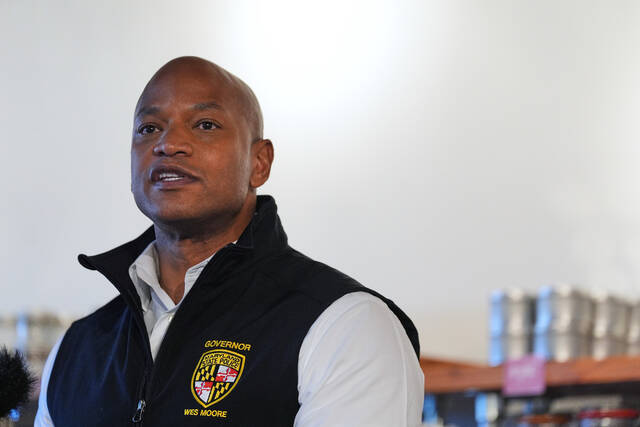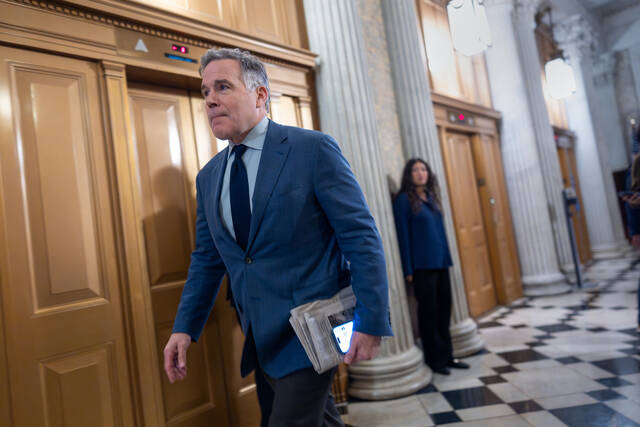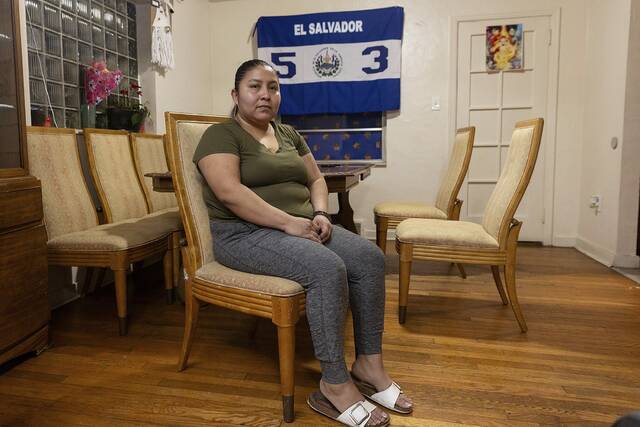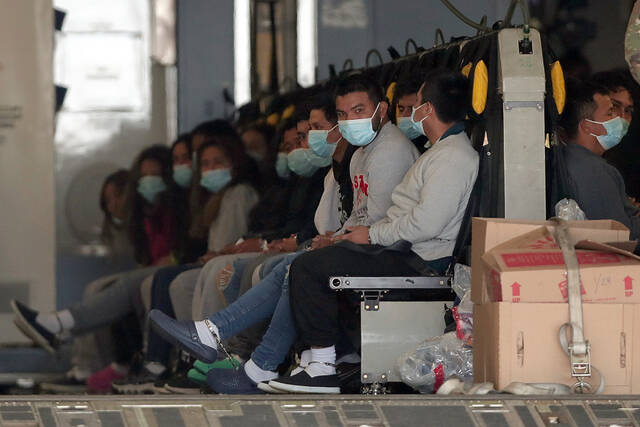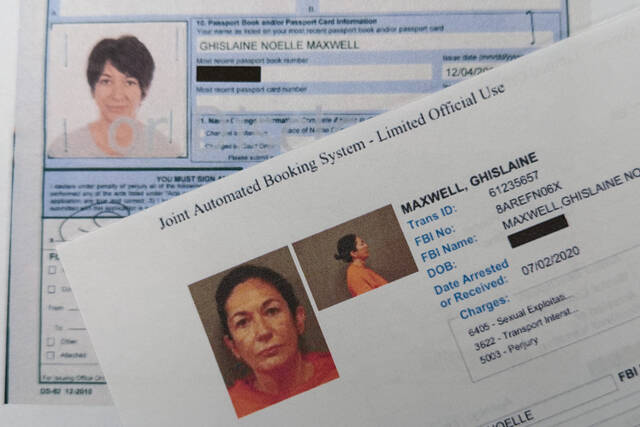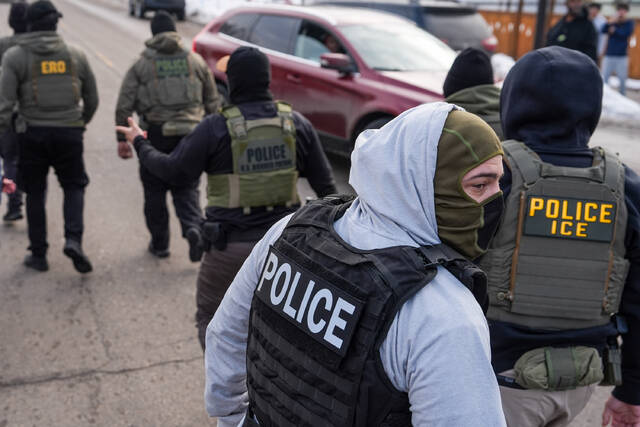Pittsburgh Mayor Ed Gainey’s administration on Tuesday proposed a penny-pinching budget that avoids a tax increase for 2026.
Gainey’s $680 million operating budget — which funds basic city functions, like employee salaries, programming and utility bills — would increase spending from the roughly $666 million budgeted this year. That’s an increase of roughly 2.2% .
But the capital budget — which includes larger, long-term projects with a value of at least $50,000 and a lifespan of at least five years — would be pared down to just over $100 million. The capital budget for this year was nearly $121 million.
The budget proposals released Tuesday evening come after the Pennsylvania Supreme Court last week ruled the city’s “jock tax” — a 3% levy on professional out-of-town athletes and performers — unconstitutional. That leaves the city unable to collect about $4 million in annual revenues from that fee. Budget officials scrambled to reflect the change in the budget.
The city is facing financial challenges as the jock tax was wiped out, federal covid-19 relief money is drying up and real estate tax revenue is dropping.
Under Gainey’s proposal, the city’s rainy day fund would shrink from about $168 million to about $136 million by the end of next year.
That figure is expected to plummet to under $72 million in 2030, revenue forecasts released Tuesday show.
“The budget reflects our commitment to responsible stewardship — balancing the books while protecting the core services our residents rely on each day,” Mayor Ed Gainey said in a statement. “We’ve achieved this without layoffs, keeping the dedicated workers who serve our neighborhoods and keep our city moving forward.”
A spokesperson for Gainey said the administration would field questions on the budget Wednesday morning.
Fifty unfilled positions are set to be cut next year.
City Council Budget Director Peter McDevitt said the modest spending increases to the operating budget may reflect heightened costs.
“The cost of everything has gone up exponentially over the past few years, which means we’re spending more money but we’re doing less services,” McDevitt said.
The budget, he said, reflects the financial strains the city has experienced in recent years.
“We knew it was going to be tight. It is tight,” McDevitt said. “In the outer years, it’s even worse.”
Controller Rachael Heisler said her office was still reviewing the proposal Tuesday.
“We remain concerned about expenditures, and the city very clearly needs to be vigilant about the trajectory of city spending, particularly in the lean years ahead,” Heisler said.
Gainey’s spending plan would reduce the budget for the mayor’s office by about $3 million. It trims the mayor’s office staff from 39 to 16 full-time employees.
The city will be under new leadership next year after Gainey lost the Democratic primary race to Allegheny County Controller Corey O’Connor, who faces former police officer Tony Moreno in the general election in November.
The budget holds the police bureau’s budgeted staffing steady at 800. In previous years, Gainey has decreased the number of budgeted positions from 900 to 850, then to 800. The bureau now has 750 officers.
The preliminary budget leaves projected police overtime spending at $15 million, despite concerns from some officials that public safety bureaus were under-budgeted for overtime costs this year. Overtime for fire is budgeted at $17.5 million next year, which would be $1 million more than this year, while the EMS overtime budget will jump from $3.6 million to nearly $6 million.
None of the public safety bureaus’ budgets include enough money to match what they spent on overtime in 2024.
“There’s small increases to the premium pay in the public safety departments,” McDevitt said. “That is still less than what we’re going to pay out this year and what we paid last year.”
“They seem not to have learned any lessons about under budgeting public safety premium pay,” Councilman Bob Charland, D-South Side, said.
Other council members could not immediately be reached or told TribLive they had not yet reviewed the budget proposal in detail.
The capital budget includes about $6.8 million for vehicles and equipment. That’s slightly more than the roughly $6 million allocated to upgrade the city’s aging vehicle fleet this year but far short of the $20 million officials have estimated ought to be put into new snowplows, fire trucks and ambulances annually.
The budget includes over 220 street projects, 12 park reconstruction projects, and three bridge upgrades.
Controller Rachael Heisler in a letter to Council Finance Chair Erika Strassburger confirmed her office has certified the budget’s revenue projections, calling the estimates “reasonable given current economic conditions.”
Heisler urged officials to focus on retaining population and attracting more people to the city to support long-term growth; monitor the real estate market and Downtown reassessments; and manage the city’s investment portfolio carefully.
The budget anticipates a roughly 3.2% increase in revenues in 2026, according to projections certified by the controller’s office. This comes after the city this year is forecast to see revenues drop by about 6.6% compared to last year.
In total, the city expects to bring in over $680.5 million in 2026.
Officials anticipate revenues to increase by less than 2% each year through 2030.
The budget, Heisler said, is now relying on the rainy day fund to fill gaps, “a trend that cannot serve as a recurring revenue source.”
Real estate taxes are expected to drop next year, with officials estimating nearly $2 million less from that revenue stream.
But projections anticipate continued growth in earned income tax, which is expected to grow at an average rate of 3.5% over the next five years. That will likely be the city’s largest revenue source next year, bringing in nearly $148 million.
Investment earnings are expected to plunge by about 10% next year, a shift that “reflects the challenging interest rate environment and emphasizes the importance of disciplined cash management practices,” Heisler wrote.
City code requires the mayor’s office to present a preliminary version of the upcoming year’s budgets by Sept. 30.
The mayor is scheduled to deliver his annual budget address before City Council on Nov. 10. That will launch a weekslong budget process that includes hearings with each city department and other entities that receive city funds, like the Urban Redevelopment Authority and the Pittsburgh Land Bank.
Council will have an opportunity to make changes to the mayor’s proposed budgets before taking a final vote by the end of the year.



